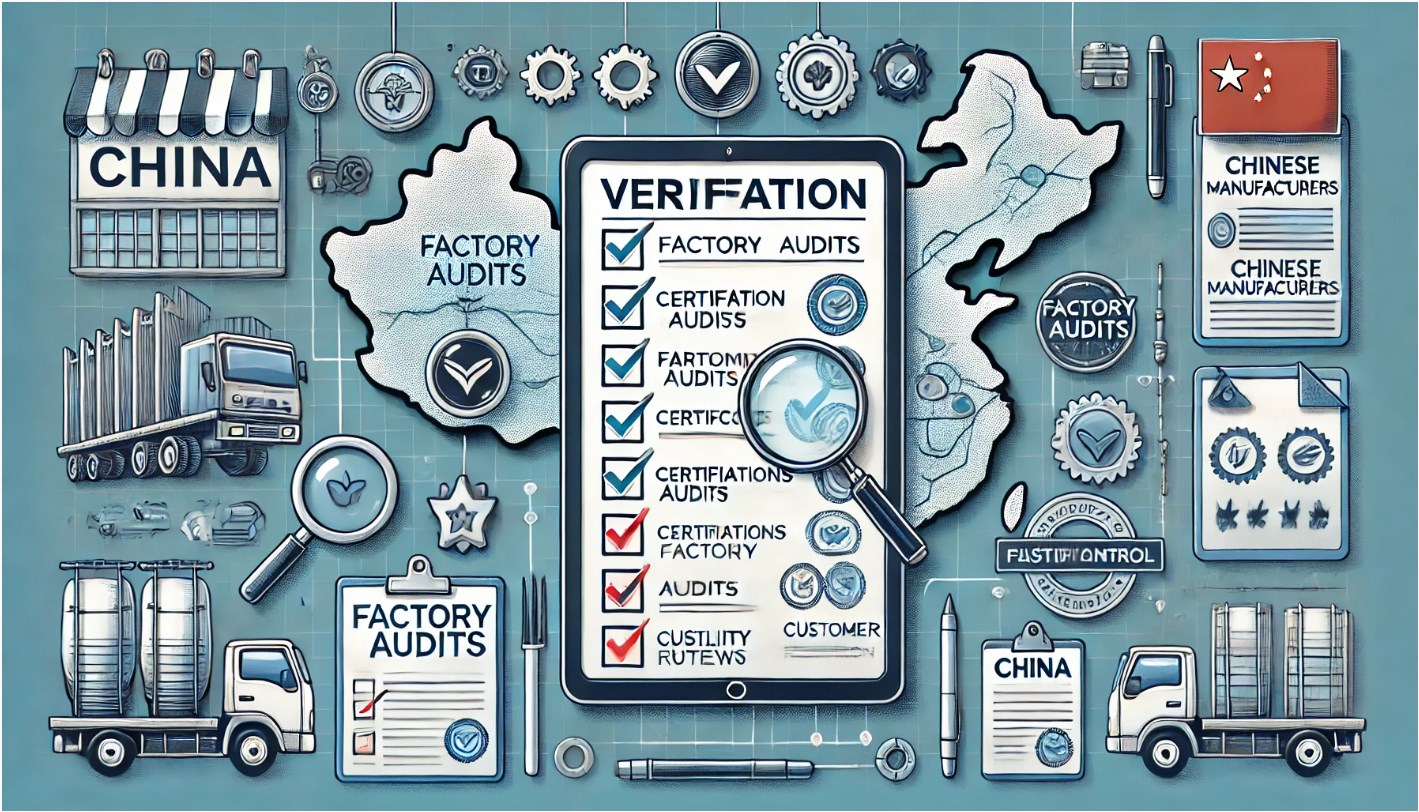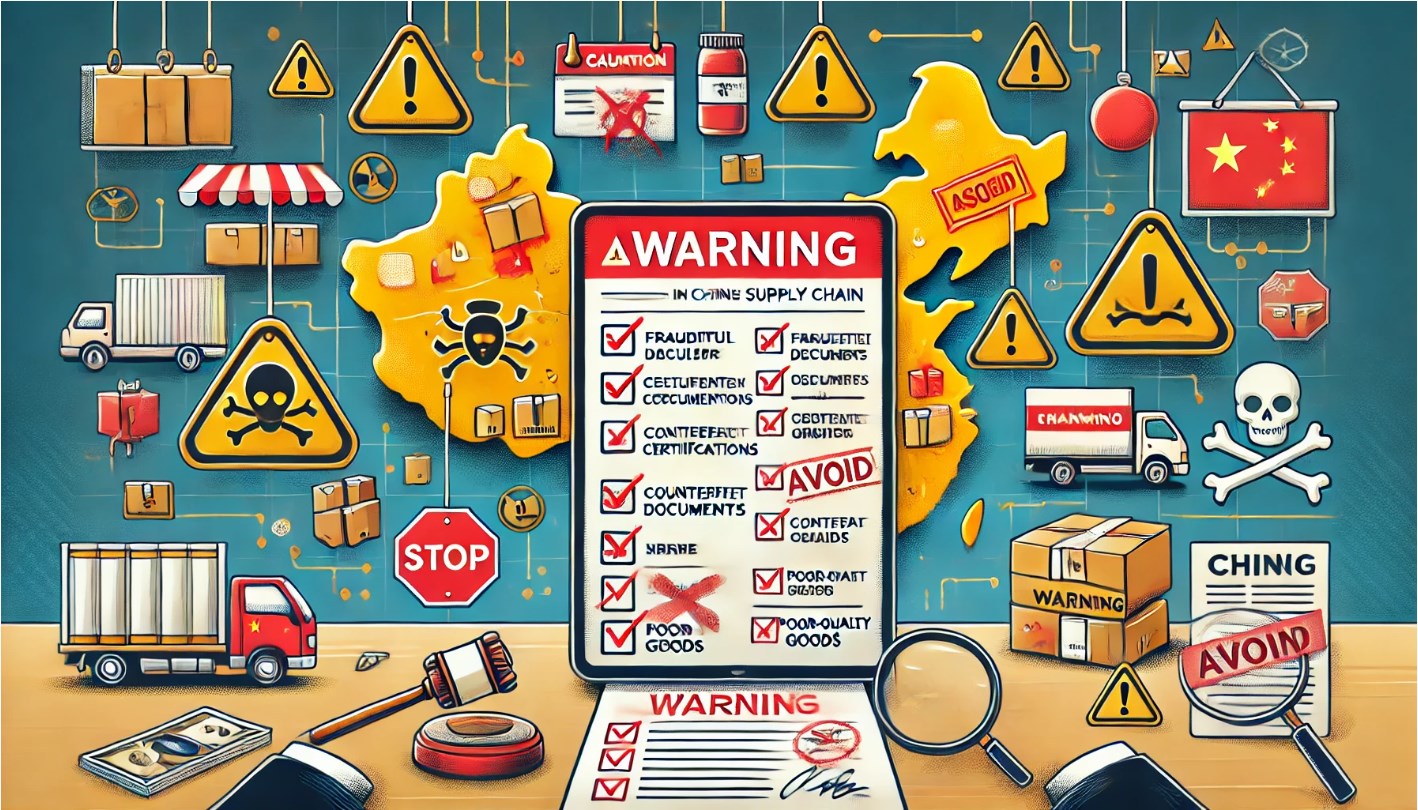China has long been a global hub for manufacturing, offering businesses around the world access to a wide range of products at competitive prices. However, sourcing from China also presents its own set of challenges, with one of the most significant being the need to evaluate the legitimacy of Chinese manufacturers. Whether you are a small business or a multinational corporation, ensuring that your supplier is legitimate is crucial for avoiding fraud, quality issues, delays, and potential legal complications.
In this comprehensive guide, we will explore how to evaluate the legitimacy of Chinese manufacturers. We’ll cover how to verify their business credentials, assess their capabilities, ensure legal compliance, and avoid potential risks in your partnership. By following these steps, you will be able to make informed decisions when choosing a Chinese manufacturer, ensuring the long-term success of your business.

Why It’s Important to Evaluate the Legitimacy of Chinese Manufacturers
Understanding the Risks
Sourcing products from China offers several advantages, such as lower manufacturing costs, high-quality goods, and an extensive range of suppliers. However, without proper due diligence, there are risks that come with the territory:
- Fraudulent Manufacturers: Some suppliers may misrepresent themselves as legitimate companies, only to disappear once a contract is signed or payment is made.
- Subpar Product Quality: Some manufacturers may not have the capabilities or quality control systems needed to meet your product standards.
- Intellectual Property Theft: Many companies in China may not respect your intellectual property (IP) rights, putting your designs, patents, or trademarks at risk.
- Legal and Regulatory Issues: Not all Chinese manufacturers comply with international regulations, which could expose your business to legal liabilities and regulatory challenges.
By evaluating the legitimacy of manufacturers, you can mitigate these risks and find trustworthy, reliable partners who meet your business needs.
Steps to Evaluate the Legitimacy of Chinese Manufacturers
Verify the Manufacturer’s Business Credentials
One of the first steps to evaluating the legitimacy of a Chinese manufacturer is to verify their business credentials. This includes confirming their legal status, business licenses, and the legitimacy of their operations.
Check the Business License
In China, every legitimate company must register with the government and obtain a business license. This license not only confirms the legality of the company but also provides important details about the manufacturer, such as:
- Company Name: Ensure that the company name matches the name of the supplier you are dealing with.
- Legal Representative: The business license will list the legal representative, who is the person responsible for the company’s legal obligations.
- Registration Number: This number is unique to the company and can be used to verify its registration status.
- Scope of Business: The license will outline the areas of business the manufacturer is authorized to operate in, which will help you determine whether their operations align with your needs.
You can verify the authenticity of the business license by checking it through China’s National Enterprise Credit Information Publicity System. This is the government’s official platform where businesses must submit their registration details.
Verify Company Registration and Ownership
In addition to checking the business license, it’s essential to verify the company’s registration details. If you are dealing with a foreign-invested enterprise (FIE), joint ventures, or other types of companies, understanding the ownership structure can provide insight into the company’s financial health and legitimacy.
You can use third-party services to confirm the company’s ownership and historical background. This might include checking whether the manufacturer has changed names or locations frequently or if there are any legal disputes tied to their business.
Confirm Their Financial Stability
Before working with a Chinese manufacturer, it’s essential to ensure they have the financial capacity to fulfill large orders and meet deadlines. Request the company’s financial statements or ask for access to their credit report from a reputable third-party service.
An unstable financial position could be a sign that the manufacturer is facing internal problems, such as high debt or insufficient working capital, which could lead to production delays or even company closure. If they are unwilling to provide financial documentation, it might be a red flag.
Assess the Manufacturer’s Capabilities
Once you’ve verified the legitimacy of a manufacturer, the next step is to assess their production capabilities. This will ensure that they can meet your quality standards, delivery deadlines, and order volumes.
Manufacturing Facilities
A legitimate manufacturer will have well-maintained, fully operational facilities capable of producing your products at scale. If you can, arrange for an in-person visit to the manufacturing site to inspect their operations. Key areas to evaluate during your visit include:
- Factory Size and Equipment: Ensure that the factory has enough space and modern equipment to meet your order requirements. The size of the factory should be proportional to the volume of production they claim to handle.
- Production Lines and Technology: Check if the manufacturer has multiple production lines, automation technology, or specialized equipment to ensure quality and efficiency. High-tech machinery may indicate that the manufacturer is serious about maintaining competitive advantage through innovation.
- Workforce: Evaluate whether the manufacturer has an experienced, skilled workforce capable of producing your product to your specifications.
If visiting the factory in person is not feasible, you can hire a third-party inspection company to conduct a factory audit. These audits assess the factory’s manufacturing capacity, labor conditions, compliance with regulations, and overall suitability for your business needs.
Product Quality Control
The ability to maintain consistent product quality is a key indicator of a legitimate manufacturer. A credible manufacturer should have a well-defined quality control (QC) system in place to monitor production standards and minimize defects. Here’s what to look for:
- ISO Certifications: Look for internationally recognized certifications like ISO 9001, which indicates that the manufacturer follows established quality management systems.
- In-House Testing: Ask if the manufacturer conducts in-house testing for product durability, safety, and performance.
- Third-Party Inspections: A reputable manufacturer should allow third-party inspections at various stages of production, from raw materials to final products.
- Sampling and Prototypes: Before committing to a large order, ask for product samples or prototypes to evaluate their quality, finish, and functionality. This step is critical in ensuring that the manufacturer can meet your specifications.
If a manufacturer is unwilling to share information about their QC processes or refuses to provide samples, it could signal potential problems with quality.
Assess Legal Compliance and Ethical Standards
Ensuring that a Chinese manufacturer is legally compliant and adheres to ethical standards is crucial for avoiding regulatory issues, protecting your brand, and safeguarding your reputation.
Regulatory Compliance
Chinese manufacturers must comply with both domestic and international regulations. Depending on the type of product, you will need to verify compliance with various standards such as:
- Product Safety Standards: For products like electronics, toys, or medical devices, the manufacturer must meet specific safety standards, such as CE certification for the European Union or UL certification for the U.S.
- Environmental Regulations: Some products may require compliance with environmental laws, such as RoHS (Restriction of Hazardous Substances) for electronics. Ask if the manufacturer has certifications that demonstrate compliance with these regulations.
- Customs and Import Regulations: If you are importing products, ensure that the manufacturer complies with all customs requirements and can provide the necessary documentation for smooth clearance at the port of entry.
Check if the manufacturer is familiar with international export regulations and can provide the necessary certificates to ensure your products meet the required standards for your target markets.
Labor Practices and Ethical Sourcing
Many businesses today are committed to ethical sourcing, ensuring that their suppliers adhere to fair labor practices and environmental responsibility. This is particularly important in China, where labor conditions can vary significantly between manufacturers. To ensure your manufacturer’s ethical compliance, consider the following:
- Workplace Conditions: If you visit the factory or conduct a third-party audit, assess the working conditions. Are the workers provided with safe, clean, and fair working conditions? Check for signs of child labor, forced labor, or unsafe working conditions.
- Fair Wages and Working Hours: Verify that the manufacturer follows local labor laws, including wage standards, overtime regulations, and limits on working hours.
- Environmental Sustainability: Does the manufacturer engage in sustainable practices, such as reducing waste, using renewable resources, or complying with environmental standards? Look for certifications that demonstrate the manufacturer’s commitment to environmental sustainability.
If the manufacturer is unwilling to provide information on their labor practices or has a poor track record of environmental compliance, this could tarnish your brand’s reputation.
Review Customer References and Testimonials
A legitimate Chinese manufacturer will have a solid track record of delivering high-quality products and reliable service. One of the best ways to assess a manufacturer’s reputation is to review feedback from previous customers. Ask for references or testimonials from businesses that have worked with the manufacturer in the past.
- Client List: Request a list of the manufacturer’s current and past clients, especially those in similar industries or with similar product requirements. A reputable manufacturer should be willing to provide this information.
- Case Studies and Success Stories: Ask the manufacturer to provide case studies or success stories that demonstrate their ability to handle large orders, meet tight deadlines, and produce high-quality products.
- Independent Reviews: Search for independent reviews of the manufacturer online, on B2B platforms such as Alibaba, or through sourcing agencies. Be cautious of overly positive reviews that may have been fabricated or incentivized.
Pay attention to any negative feedback about delayed shipments, poor quality, or communication problems. Repeated issues in these areas can signal deeper problems with the manufacturer’s reliability.
Ensure Protection of Intellectual Property (IP)
Intellectual property (IP) protection is a significant concern when sourcing from China. Manufacturers must respect your patents, trademarks, and proprietary designs to avoid potential IP theft. To ensure the protection of your intellectual property, consider the following:
Non-Disclosure Agreements (NDAs)
Before sharing sensitive information, ensure that the manufacturer is willing to sign a legally binding non-disclosure agreement (NDA). This agreement ensures that they cannot share your designs, processes, or business strategies with third parties.
Patents and Trademarks
If you are manufacturing a unique product, consider registering your patents and trademarks in China to protect your IP. This gives you legal recourse if the manufacturer tries to infringe on your intellectual property.
Regular Audits and Monitoring
Conduct regular audits of your manufacturer’s production process to ensure that your designs are not being copied or sold to third parties. This is particularly important for high-value products or innovative designs.






